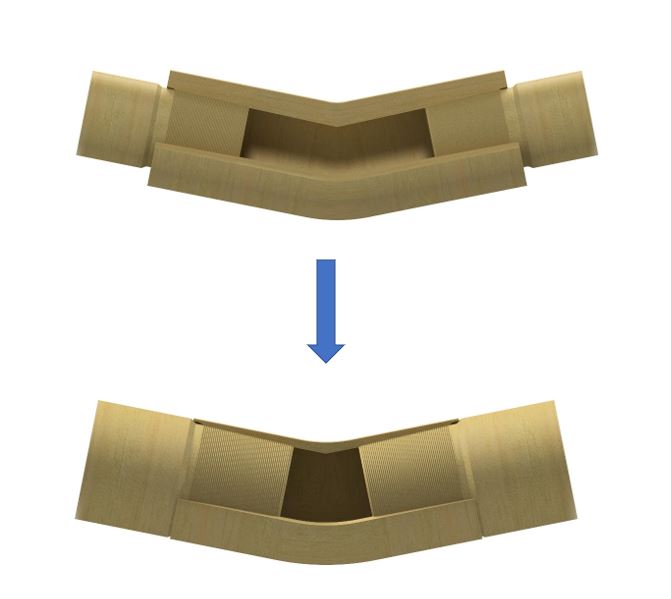Make Enquiry

Our Standards
Industry
Compliance
At Future Pipe Industries, we don’t just meet standards, we set them.
In addition to certifications, we work closely with numerous International Standards Organizations to continuously meet as well as play a role in developing industry best practices to improve the performance of our composite pipes worldwide.
We work with International Standards Organizations such as the International Organization for Standardization (ISO), European Standards (EN), British Standard Institute (BSI), Deutsches Institut für Normung (DIN), American Society for Testing and Materials (ASTM), American Society of Mechanical Engineers (ASME), American Water Works Association (AWWA), and American Petroleum Institute (API) to enhance performance and ensure compliance with industry standards.
Crafting Excellence Through Advanced Winding Techniques
Winding Technologies
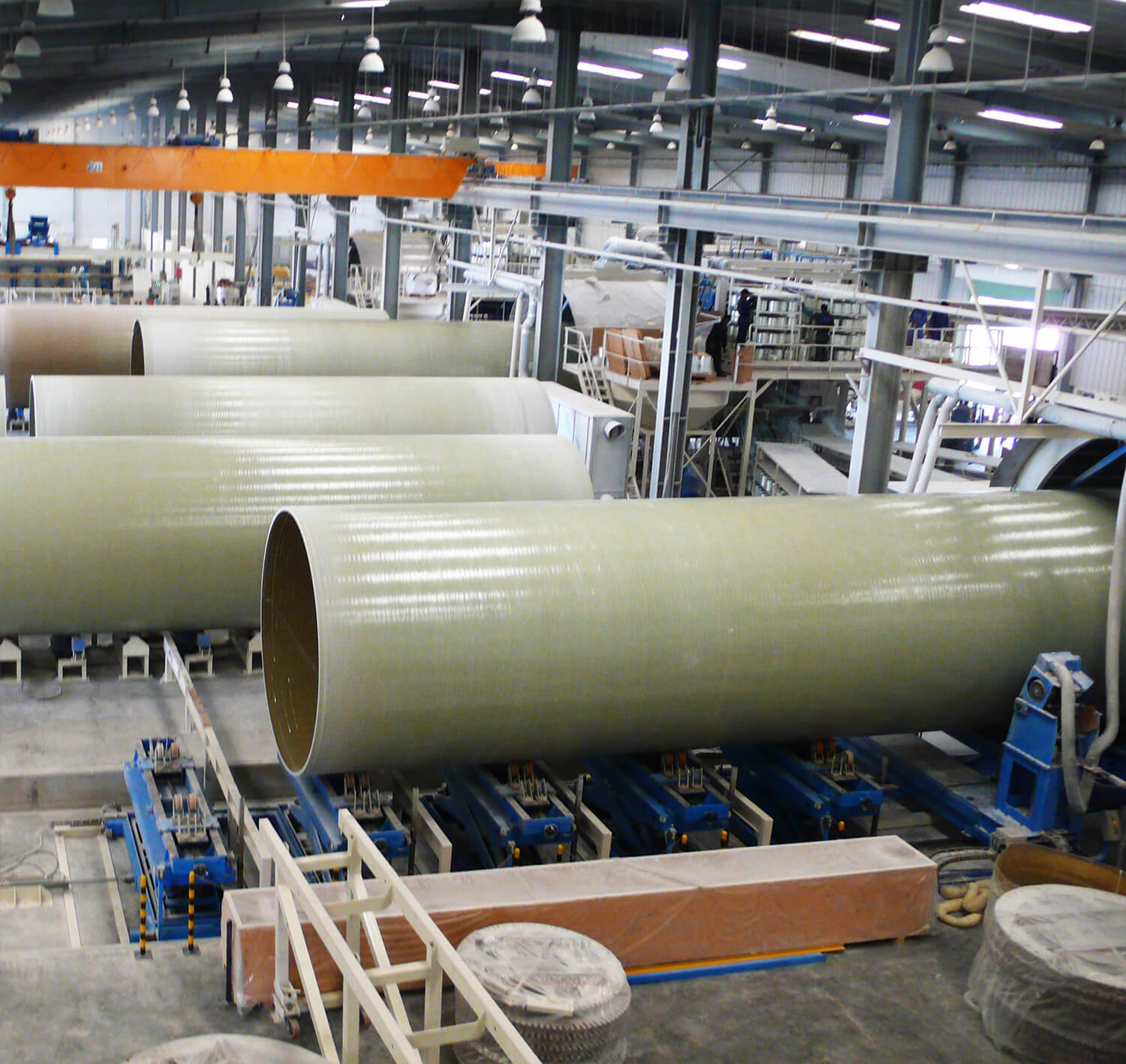
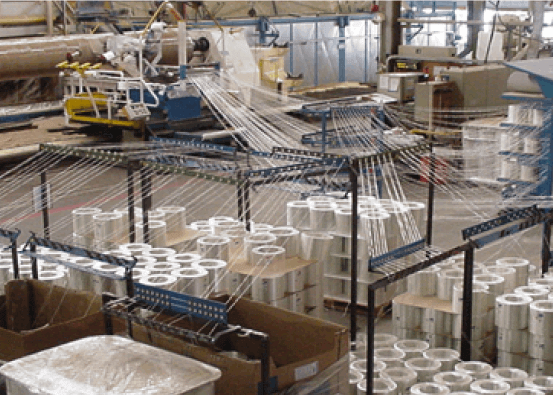
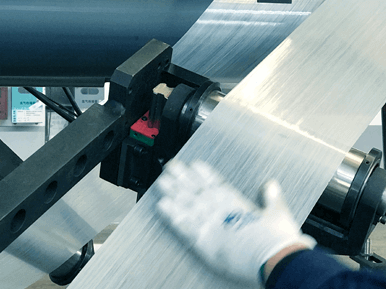
01
Continuous Winding Technology
Our continuous winding process produces pipes without interruptions, ensuring uniformity and performance for long lengths and varying diameters, up to DN 4000 mm.
02
Helical Reciprocal Filament Winding Technology
Helical winding applies resin-impregnated fibres in precise patterns for pipes with exceptional torsional strength and durability, up to DN 1600 mm.
03
Spoolable Winding Technology
Thermoplastic Composite Pipe (TCP) technology delivers fully bonded pipes up to 1100m (3600 ft) long. With three thermoplastic layers, including a fiber reinforced HDPE structural wall, these pipes offer unparalleled strength and flexibility.
Product Design
& Development Process
Process, Raw Material,
& Machinery
The Three Pillars of Our Manufacturing Excellence
Process:
Raw Material:
Machinery:
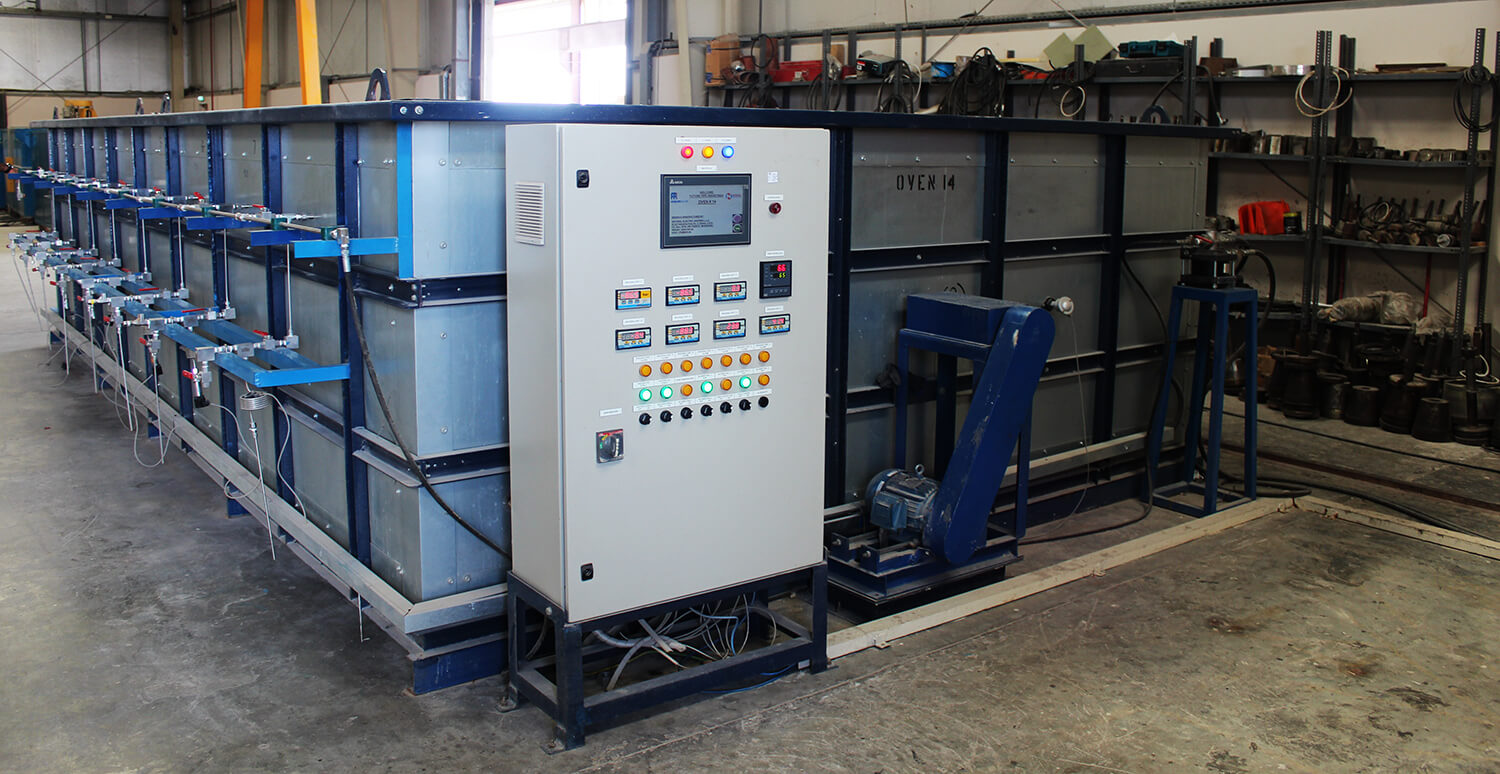
Quality Assurance
Advance
Product Testing
Every Future Pipe Industries product undergoes rigorous testing in our labs. From stress tests to environmental simulations, we ensure our pipes withstand harsh conditions and demanding applications, performing reliably in critical situations.

Our Process
Rigorous Quality Control
Future Pipe Industries testing facilities in UAE, the Netherlands, and KSA are staffed with over 60 experienced Ph.D. scientists, engineers, and technicians. They focus on product, machinery, and process design improvements. Over 500 tests are conducted annually, including HDB, Ring Bending, Strain Corrosion, Creep, UEWS, Survival Testing, and Abrasion and Impact resistance. These tests use specialized automated equipment with a 24/7 data logging system, ensuring accuracy by international standards like ISO, ASTM, BS, and API. Our long-term testing equipment has over 80 pressure points for simultaneous sample testing with a capability of up to 700 bars and 150°C.
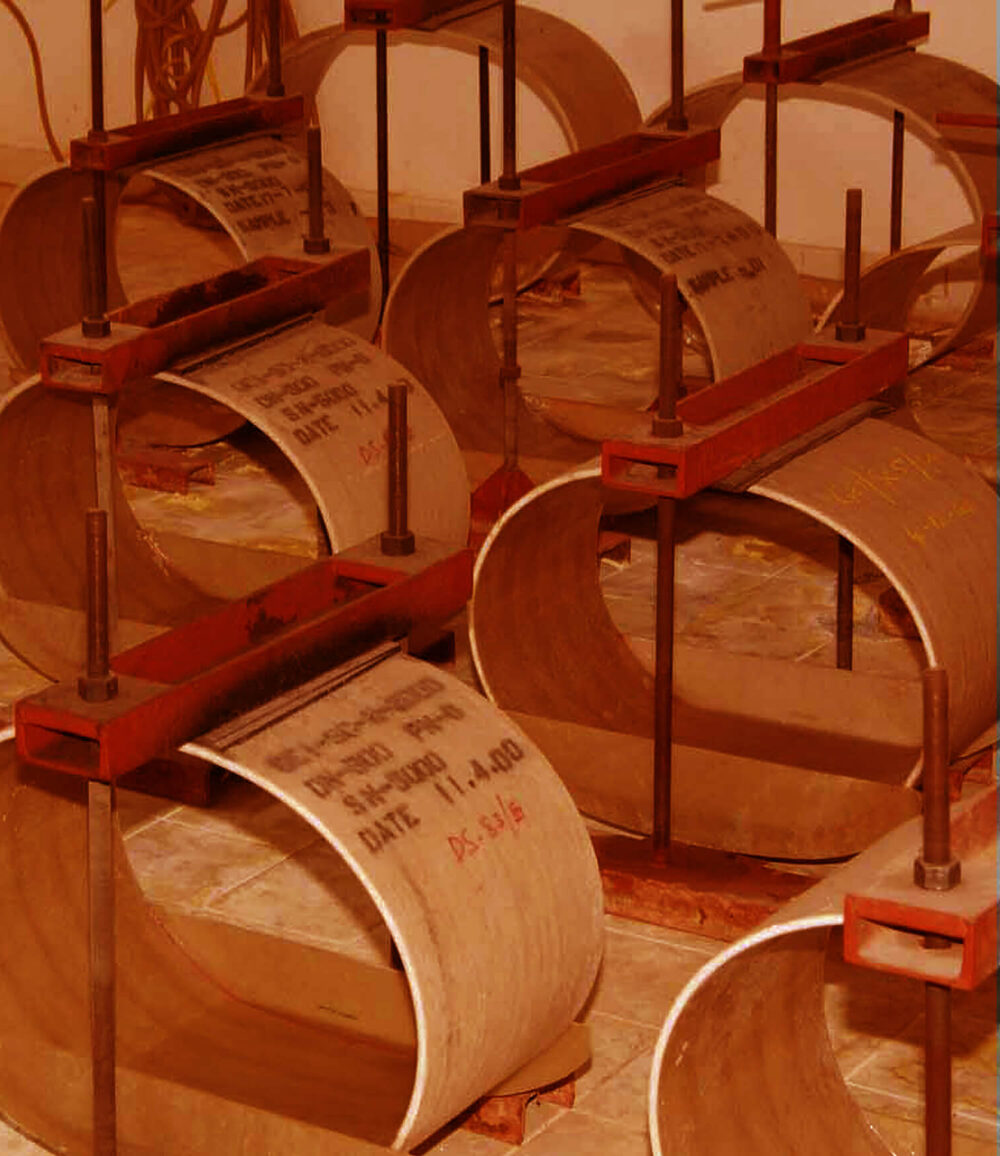
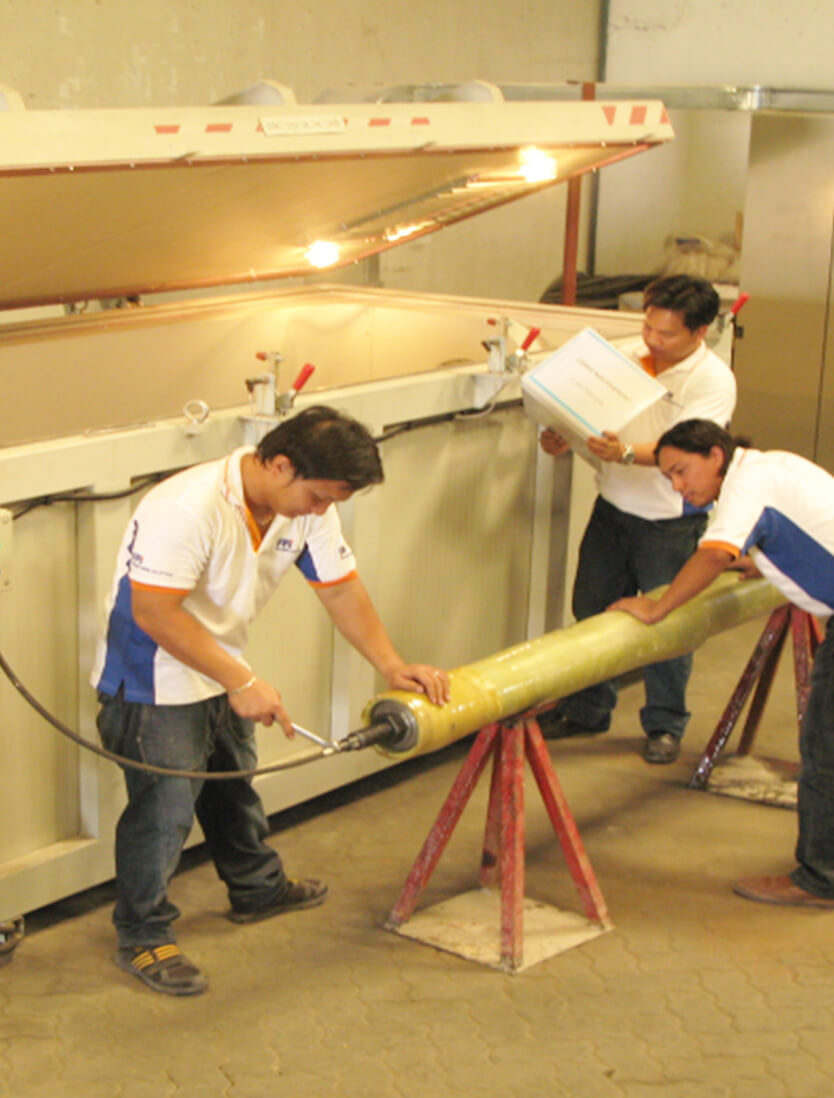
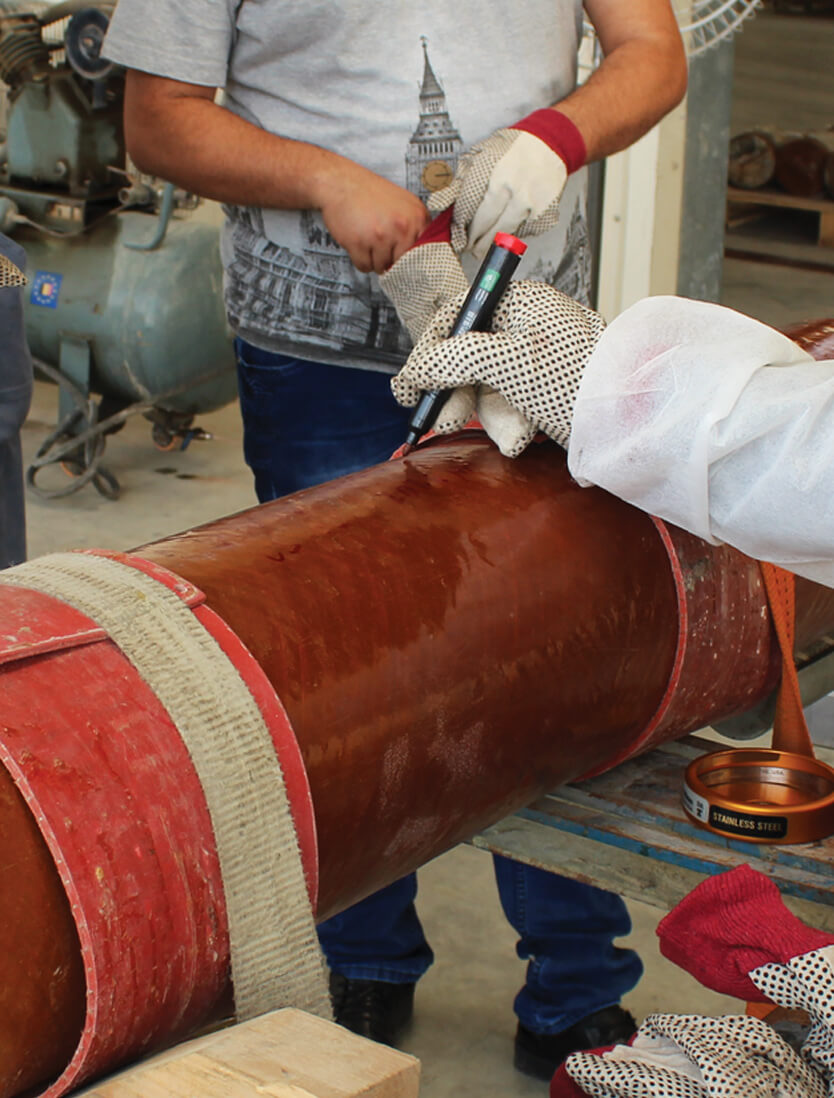
Research & Development
Pioneering the Future
of Piping Solutions
Through our dedication to innovation and environmental stewardship, we aim to redefine the possibilities of composite technology and drive positive change in the industry.
Leveraging our vast experience and exceptional expertise, we engage in continuous, adaptive innovation to develop solutions tailored to the specific needs of our clients, embodying a partner-centric approach to solution development.
Concurrently, our dedicated R&D efforts are focused on game-changing advancements that elevate industry standards in effectiveness, efficiency, and sustainability.
We collaborate on R&D projects in the composites field with renowned universities, organizations, and research centers. FPI houses two R&D Centers of Excellence to respond to customer demands and work with research organizations in the EU and GCC, ensuring innovation and industry-leading solutions.
Empowered by our unwavering commitment and strategic investments in R&D, we are poised to consistently deliver innovative solutions, remaining a reliable partner for the long term.
Technology and Manufacturing Readiness Levels
We are committed to staying at the forefront of technological advancements to create groundbreaking solutions that shape the future. A structured approach drives our R&D efforts, and we employ Technology Readiness Levels (TRLs) and Manufacturing Readiness Levels (MRLs) to guide our projects from conception to implementation.
TRLs are a systematic and standardised method for assessing the maturity of a technology or innovation. They range from TRL 1 (theoretical concept) to TRL 9 (fully operational and proven in a real-world environment). Each level represents a stage in the development process, helping us understand where a technology stands regarding feasibility and readiness for practical application.
MRLs are a structured approach for assessing a product’s or technology’s readiness for manufacturing and production. The MRL scale ranges from MRL 1 (basic research and ideas) to MRL 10 (full-rate production). Each level represents a stage in the development process, helping us gauge the maturity and readiness of a product for deployment and manufacturing.
Why TRLs and MRLs Matter
The TRL and MRL frameworks allow us to systematically assess risks, allocate resources efficiently, and make informed decisions at each stage of development, in turn allowing us to evaluate and enhance the readiness of our products for efficient, cost-effective and high-quality manufacturing. It ensures that our innovations are groundbreaking, reliable, and ready for real-world applications.
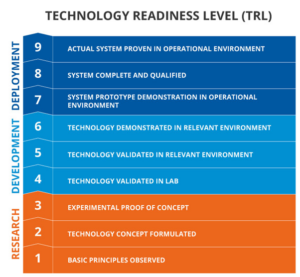
FPI Engineering Toolbox
(Coming Soon)
The FPI Engineering Toolbox offers advanced tools, resources, and expertise for designing, testing, and optimizing composite pipe systems, ensuring top performance and reliability.


